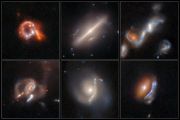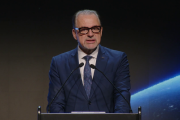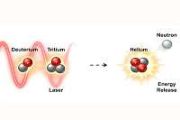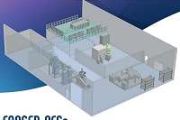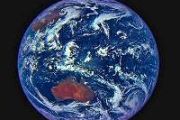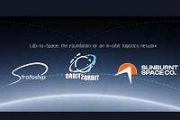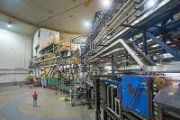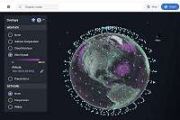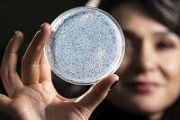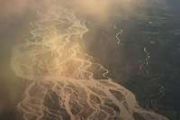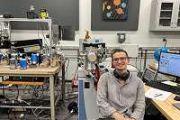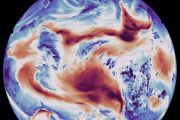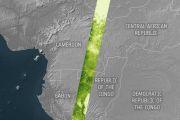
Copernical Team
A step towards quantum gravity
 In Einstein's theory of general relativity, gravity arises when a massive object distorts the fabric of spacetime the way a ball sinks into a piece of stretched cloth. Solving Einstein's equations by using quantities that apply across all space and time coordinates could enable physicists to eventually find their 'white whale': a quantum theory of gravity.
In a new article in EPJ Historica
In Einstein's theory of general relativity, gravity arises when a massive object distorts the fabric of spacetime the way a ball sinks into a piece of stretched cloth. Solving Einstein's equations by using quantities that apply across all space and time coordinates could enable physicists to eventually find their 'white whale': a quantum theory of gravity.
In a new article in EPJ Historica Pitt is the only university in the U.S. with this giant 3D printer for metal
 Tucked away in the sub-basement of Pitt's Benedum Hall, past the racecar parts spilling into hallways, you'll find a giant machine that looks like a cross between a car garage and the entry port of a sci-fi spaceship. It's a state-of-the-art 3D printer for metal - the first Gefertec arc605 at any university in the U.S.
For producing big, specialized metal parts, the machine is unbeatable,
Tucked away in the sub-basement of Pitt's Benedum Hall, past the racecar parts spilling into hallways, you'll find a giant machine that looks like a cross between a car garage and the entry port of a sci-fi spaceship. It's a state-of-the-art 3D printer for metal - the first Gefertec arc605 at any university in the U.S.
For producing big, specialized metal parts, the machine is unbeatable, Iran seeks 3 more Khayyam satellites
 Iran plans to commission three more versions of a satellite launched this week by Russia, Tehran's government spokesman said Friday.
The Khayyam blasted into orbit on Tuesday, prompting US accusations that it is intended for spying. Iran dismissed Washington's claim as "childish."
"The construction of three other Khayyam satellites with the participation of Iranian scientists is on the g
Iran plans to commission three more versions of a satellite launched this week by Russia, Tehran's government spokesman said Friday.
The Khayyam blasted into orbit on Tuesday, prompting US accusations that it is intended for spying. Iran dismissed Washington's claim as "childish."
"The construction of three other Khayyam satellites with the participation of Iranian scientists is on the g Software-defined satellite enters commercial service
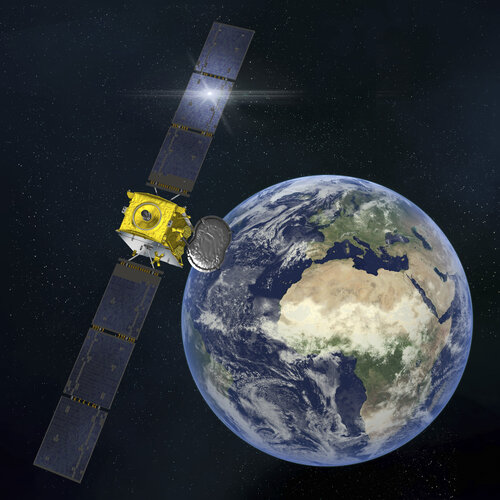
Europe’s first commercial satellite capable of being completely reprogrammed while in space is now in commercial use.
All systems go in Houston as NASA prepares return to Moon
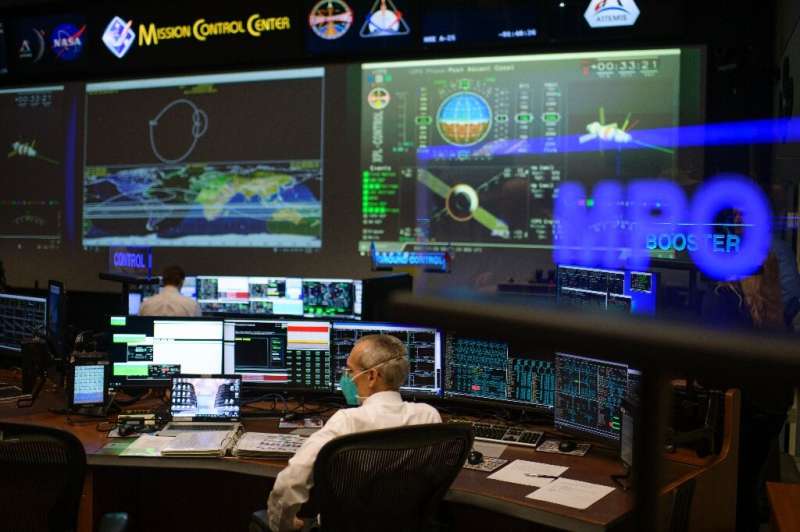
Rick LaBrode has worked at NASA for 37 years, but he says the American quest to return to the Moon is by far the crowning moment of his career.
LaBrode is the lead flight director for Artemis 1, set to take off later this month—the first time a capsule that can carry humans will be sent to the Moon since the last Apollo mission in 1972.
"This is more exciting than really anything I've ever been a part of," LaBrode told journalists at the US space agency's Mission Control Center in Houston, Texas.
Harvest from heavenly breeding
 When China's Shenzhou-14 spaceship returns to Earth late this year, it will bring home some unusual packages - brewer's yeast grown in space.
It will be part of the harvest of a 6-month-long breeding experiment aboard the Tiangong space station, which is under construction. Scientists say that the microorganism, exposed to deep space, will induce genetic mutations that may create superior
When China's Shenzhou-14 spaceship returns to Earth late this year, it will bring home some unusual packages - brewer's yeast grown in space.
It will be part of the harvest of a 6-month-long breeding experiment aboard the Tiangong space station, which is under construction. Scientists say that the microorganism, exposed to deep space, will induce genetic mutations that may create superior Chinese commercial carrier rocket Smart Dragon-3 completes ground tests
 China's new carrier rocket Smart Dragon-3 (SD-3), designed for commercial use, has completed large-scale ground tests, its developer said on Thursday.
The rocket was developed by the China Rocket Co. Ltd., which is affiliated with the China Academy of Launch Vehicle Technology (CALVT). It is a four-stage solid-propellant carrier rocket.
The rocket is the largest of the SD series and
China's new carrier rocket Smart Dragon-3 (SD-3), designed for commercial use, has completed large-scale ground tests, its developer said on Thursday.
The rocket was developed by the China Rocket Co. Ltd., which is affiliated with the China Academy of Launch Vehicle Technology (CALVT). It is a four-stage solid-propellant carrier rocket.
The rocket is the largest of the SD series and SpaceX launches 46 new Starlink satellites into orbit
 SpaceX launched its next round of Starlink satellites into low-Earth orbit aboard a Falcon 9 rocket lifting off from the Vandenberg Space Force Center in California on Friday afternoon.
The Elon Musk-owned private space company plans to add 46 new satellites to its constellation of small satellites around the world in order to allow access to the Internet regardless of how remote the locat
SpaceX launched its next round of Starlink satellites into low-Earth orbit aboard a Falcon 9 rocket lifting off from the Vandenberg Space Force Center in California on Friday afternoon.
The Elon Musk-owned private space company plans to add 46 new satellites to its constellation of small satellites around the world in order to allow access to the Internet regardless of how remote the locat Hubble sees red supergiant star Betelgeuse slowly recovering after blowing its top
 Analyzing data from NASA's Hubble Space Telescope and several other observatories, astronomers have concluded that the bright red supergiant star Betelgeuse quite literally blew its top in 2019, losing a substantial part of its visible surface and producing a gigantic Surface Mass Ejection (SME). This is something never before seen in a normal star's behavior.
Our Sun routinely blows off p
Analyzing data from NASA's Hubble Space Telescope and several other observatories, astronomers have concluded that the bright red supergiant star Betelgeuse quite literally blew its top in 2019, losing a substantial part of its visible surface and producing a gigantic Surface Mass Ejection (SME). This is something never before seen in a normal star's behavior.
Our Sun routinely blows off p Brightest stars in the night sky can strip Neptune-sized planets to their rocky cores
 Over the last 25 years, astronomers have found thousands of exoplanets around stars in our galaxy, but more than 99% of them orbit smaller stars - from red dwarfs to stars slightly more massive than our sun, which is considered an average-sized star.
Few have been discovered around even more massive stars, such as A-type stars - bright blue stars twice as large as the sun - and most of the
Over the last 25 years, astronomers have found thousands of exoplanets around stars in our galaxy, but more than 99% of them orbit smaller stars - from red dwarfs to stars slightly more massive than our sun, which is considered an average-sized star.
Few have been discovered around even more massive stars, such as A-type stars - bright blue stars twice as large as the sun - and most of the 



